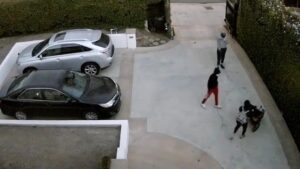Her Complaint
 Twenty years old, she’d worked as a secretary for Cambridge, Inc., a small mortgage brokerage firm, for only a month when she claimed the CEO sexually assaulted her. He insisted he never touched her.
Twenty years old, she’d worked as a secretary for Cambridge, Inc., a small mortgage brokerage firm, for only a month when she claimed the CEO sexually assaulted her. He insisted he never touched her.
“It’s a he-said-she-said situation,” the office manager told her. “There’s nothing I can do.”
A few days later, Cambridge fired her.
She filed suit, alleging sexual harassment, gender discrimination, and wrongful termination. My law firm represented Cambridge and I was assigned to defend the case.
Margaret, the office manager, in her forties, tall and thin with short coal-black hair, dressed in a dark blue skirt and matching jacket, escorted me into the CEO’s office.
We sat down across the desk from Ted, in his mid-thirties, average height with an athletic build, close-cropped brown hair, and a confident demeanor. “I barely remember her,” he said. “We had no contact other than the few times she brought me documents to sign. I don’t even know when she claims I harassed her.”
“The morning of July 12,” Margaret said.
“I understand she reported the incident to you,” I said to Margaret.
“That’s correct. She told me she was standing beside Ted at his desk while he reviewed letters she’d typed when he grabbed her around the hips and shoved his hand up under her skirt.”
“Ridiculous,” Ted said.
“Any witnesses?” I asked.
“They were alone. She said Ted told her to close his office door when she walked in.”
“That’s a lie,” Ted said. “She closed it on her own.”
Interesting, I thought. Ted doesn’t remember when she claims the incident took place, but he recalls she closed the door that morning. “Did anyone see her when she came out of Ted’s office?”
 “My office is across the hall,” Margaret said. “I saw her come out and run down the hall. She was sobbing hysterically. I found her in the women’s restroom. It took her a long time to calm down enough to tell me her version of what happened. She was so upset I sent her home for the day.”
“My office is across the hall,” Margaret said. “I saw her come out and run down the hall. She was sobbing hysterically. I found her in the women’s restroom. It took her a long time to calm down enough to tell me her version of what happened. She was so upset I sent her home for the day.”
“The discharge letter says you fired her for insubordination.”
“Working with Ted is a job requirement. She refused.”
“Who made the decision to fire her?”
Margaret looked at Ted.
“Margaret and I made the decision together,” he said.
“What was the quality of her work?”
“Excellent,” Margaret said. “She was fresh out of a good secretarial school. Inexperienced, but highly skilled.”
I studied Margaret. She returned my stare evenly.
“Give us a minute alone,” I said to her. She left the office.
“A pack of lies,” Ted said.
 “She’s a good liar,” I said. “In the few seconds it took her to reach your office door, she burst into tears and kept it up until Margaret sent her home.”
“She’s a good liar,” I said. “In the few seconds it took her to reach your office door, she burst into tears and kept it up until Margaret sent her home.”
“All part of an act designed to hit the lawsuit lottery.”
“An Oscar-winning performance on the spur of the moment.”
“She probably rehearsed it.”
“Twenty years old. First job after secretarial school. Not the typical profile of a conniving fraudster.”
Ted paused. “You don’t believe me?”
“I’m giving you an objective assessment of the facts. Margaret’s observation of her behavior supports her story.”
He gave me a blank stare.
“Tell me what really happened,” I said.
More of the blank stare. Then, “You can’t tell anyone what I say, right?”
“This is an attorney-client privileged conversation. I can’t tell anyone without your permission.”
He smirked. “She’s got a killer body, and she knows it. When I walked by her desk in the secretarial bay that morning, she gave me a smile and a fetching look. Ten minutes later, she showed up at my door wearing a short skirt and a tight blouse and stood right next to me while I reviewed her work. Her hip brushed against my shoulder. It was an obvious come-on, but when I tried to pull her down into my lap, she went crazy. Screamed and ran out of here like I’d tried to rape her or something.”
“Did you put your hand under her skirt?”
“I might have. I don’t recall. It was all over in a couple of seconds. It was no big deal.”
“It seems to have been a big deal to her.”
“What did she expect? Dressing like that. Flaunting it.”
I searched Ted’s face. Indifference, with a hint of defiance. No shame. This is not going to be easy, I thought.
“She’s got a strong case,” I said. “We should settle it before her lawyer digs into the facts.”
Ted looked shocked. “She can’t prove anything. It’s her word against mine.”
“Your story isn’t credible. Margaret’s putting up a good front, but she believes the plaintiff. It took me less than ten minutes of questioning to see through your denial.”
“Okay. Let’s work on my story. Shore up the weak points.”
“That’s not an option. You’ll have to testify under oath.”
“So what? No one will know I’m lying.”
“You’ll know. I’ll know.”
“Well, I sure as hell won’t tell anyone and you can’t tell because you’re my lawyer.”
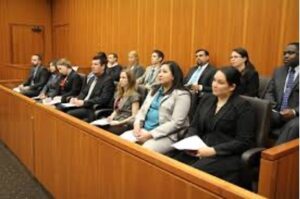
“If you get caught, you’ll face perjury charges. It’s not worth the risk. Besides, the jury will likely believe her even if you lie. She’ll get back pay, compensation for emotional distress, punitive damages. The judgment could reach six figures, but if we don’t fight her claim and settle the case quickly, she’ll probably walk away for a small payment and a written recommendation.”
“How small?”
“Ten thousand. Maybe less.”
“Ten thousand dollars! For a two-second grab that went nowhere!”
“You’ll spend a lot more in court costs and legal fees defending the case.”
“Fine. At least we’ll get something for our money. I’m not paying her a dime.”
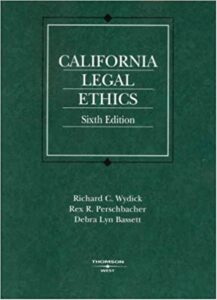 I argued long and hard, but Ted wouldn’t budge, which put me in a tight spot. The canons of ethics prohibit a lawyer from presenting false evidence to the court, so I couldn’t knowingly allow Ted to lie under oath. But the rules also prohibited my disclosure of his confession to anyone, including the court. Under California law, there was only one way to protect both conflicting interests. I withdrew from the case without telling anyone what Ted had told me, and he hired a different firm to defend the lawsuit.
I argued long and hard, but Ted wouldn’t budge, which put me in a tight spot. The canons of ethics prohibit a lawyer from presenting false evidence to the court, so I couldn’t knowingly allow Ted to lie under oath. But the rules also prohibited my disclosure of his confession to anyone, including the court. Under California law, there was only one way to protect both conflicting interests. I withdrew from the case without telling anyone what Ted had told me, and he hired a different firm to defend the lawsuit.
I changed a few details and the names of the company and executives, but otherwise this narration tracks the fact-pattern of a case I worked on in the 1980’s.
I like this story. It makes me look good for doing the right thing, but the truth is it was an easy call. The fee to defend the case amounted to less than a drop in my firm’s bucket of revenues; the client was a small company whose ongoing business was meaningless to us; and Ted made my skin crawl. Withdrawing required no real sacrifice and no courage.

About the time I withdrew from representing Cambridge, a lawyer in my firm drafted opinion letters concerning the likelihood of liability and potential damage awards in cases she was handling for one of our biggest clients. Financial laws required the client to disclose the attorney’s estimates to creditors and shareholders. Its General Counsel disagreed with her opinions. He demanded that she change them to downplay the risk of loss and reduce the potential damages.
Ethical canons and federal laws require an attorney to render honest and accurate opinions about such matters. She gave the General Counsel the back-up data supporting her estimates and told him she couldn’t change them. He became belligerent and threatened to fire the firm from all his company’s legal matters. She was shaken but stood her ground.
Soon afterwards, the company declared bankruptcy. Its debts and potential liabilities far outstripped its assets. We learned then that the General Counsel had pressured all its outside law firms to change their opinions so it could take on more debt in a desperate attempt to survive. Some lawyers had complied. Their firms faced potential fraud charges. Mine did not.
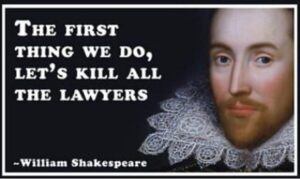
In public opinion surveys, lawyers routinely rank at the bottom in public trust. There are good reasons for this. Sleazy lawyers abound and they tend to garner a lot of publicity, but I worked with legions of attorneys of the highest ethical character whose courage and conviction went unnoticed in the public eye. My former partner was at the top of that list.
I’d like to believe I was in her league, but I’ll confess I’ve often wondered what I would have done if the context of my withdrawal had been different. Suppose Cambridge had been a Fortune 500 corporation and one of the firm’s largest clients. Suppose Ted had threatened to fire my firm from all legal matters if I withdrew. I’d like to think I would have been as strong as my partner, but I don’t know for sure. I wasn’t put to the test. She was, and her performance under immense pressure earned my everlasting admiration and respect.
Post Script: A year after I withdrew from the case that inspired this post, the plaintiff’s attorney told me my successor settled it on the eve of trial. He said the terms were confidential, but the huge smile on his face leads me to believe the company paid big bucks to get out of that mess.
The real Cambridge eventually filed for bankruptcy. The CEO was the majority owner, so the real Ted may have gone down with the ship. I hope so.



 The videotape begins with a high-angle camera shot of a beefy middle-aged man securing a bike to the roof of a blue hatchback parked on the curb of a suburban street. He finishes up and walks around to the rear of the car. A teenage girl carrying a laundry basket stuffed with clothes and a tennis racket meets him there, slides the basket into the car, and closes its back door.
The videotape begins with a high-angle camera shot of a beefy middle-aged man securing a bike to the roof of a blue hatchback parked on the curb of a suburban street. He finishes up and walks around to the rear of the car. A teenage girl carrying a laundry basket stuffed with clothes and a tennis racket meets him there, slides the basket into the car, and closes its back door.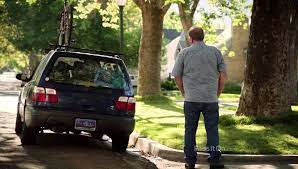 She walks back to him, and they embrace again. “I love you too, daddy,” she says softly.
She walks back to him, and they embrace again. “I love you too, daddy,” she says softly.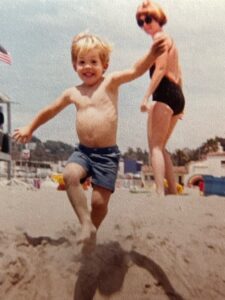

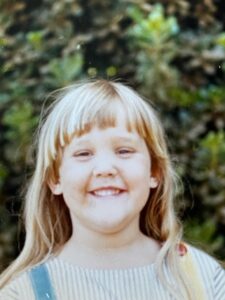

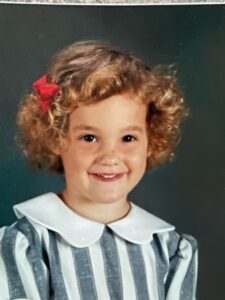

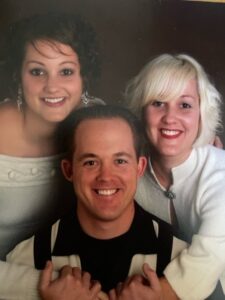 I appreciate the message, but I’d revise the script slightly to show that gratitude runs from the beefy guy to his little girl, too. I’d add these lines for him: “Thanks for all the good times, for your love, and for growing up to become someone I admire and respect. Thanks for … everything.”
I appreciate the message, but I’d revise the script slightly to show that gratitude runs from the beefy guy to his little girl, too. I’d add these lines for him: “Thanks for all the good times, for your love, and for growing up to become someone I admire and respect. Thanks for … everything.” Cindy stood beside me clutching my arm as I flipped the deadbolt, opened the door, and pointed my shotgun at the chest of a black, angel-winged Led Zeppelin tee shirt worn by a stranger. In his mid-twenties, tall, and thin with shoulder-length blond hair and a hooked nose, he froze in the act of bringing a cigarette to his mouth and stared at the business end of my twelve gauge as though he couldn’t quite figure out what it was.
Cindy stood beside me clutching my arm as I flipped the deadbolt, opened the door, and pointed my shotgun at the chest of a black, angel-winged Led Zeppelin tee shirt worn by a stranger. In his mid-twenties, tall, and thin with shoulder-length blond hair and a hooked nose, he froze in the act of bringing a cigarette to his mouth and stared at the business end of my twelve gauge as though he couldn’t quite figure out what it was.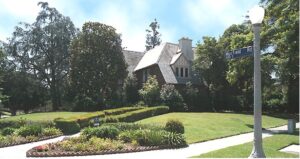



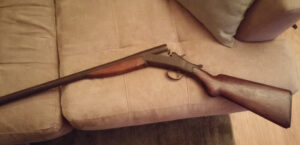 I pulled on a pair of jeans. The single-shot twelve gauge I used for hunting in Virginia was propped in the corner of our bedroom closet. I grabbed it, retrieved a shell from our dresser drawer, and slipped it into the chamber.
I pulled on a pair of jeans. The single-shot twelve gauge I used for hunting in Virginia was propped in the corner of our bedroom closet. I grabbed it, retrieved a shell from our dresser drawer, and slipped it into the chamber.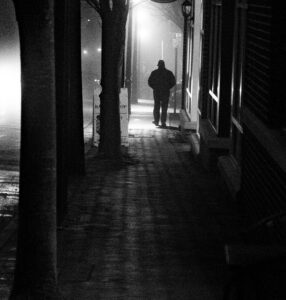 I kept the shotgun trained on him until he rounded the corner of the house. Cindy and I rushed out to the living room. From the front windows, we watched him walk out to the street, turn right at the sidewalk, pass under a streetlamp, and disappear into the night.
I kept the shotgun trained on him until he rounded the corner of the house. Cindy and I rushed out to the living room. From the front windows, we watched him walk out to the street, turn right at the sidewalk, pass under a streetlamp, and disappear into the night.